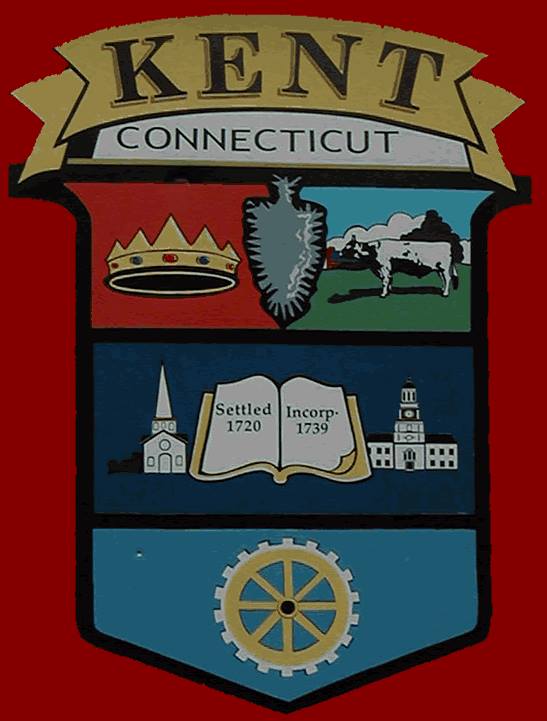 The Town of Kent filed a post-hearing brief with the Connecticut Siting Council Oct. 22 that details reasons why the application from Homeland Towers and New Cingular Wireless/AT&T to construct a cell tower at one of two sites in town is fatally flawed and must be denied.
The Town of Kent filed a post-hearing brief with the Connecticut Siting Council Oct. 22 that details reasons why the application from Homeland Towers and New Cingular Wireless/AT&T to construct a cell tower at one of two sites in town is fatally flawed and must be denied.
Homeland Towers and New Cingular Wireless/AT&T are asking the Siting Council to issue a certificate of environmental compatibility and public need for the construction of a wireless telecommunications facility at sites on Bald Hill Road or Richards Road.
The brief, prepared and filed by Cramer & Anderson Partner Dan Casagrande and telecommunications Attorney Daniel Rosemark, details the Town’s concerns about towers being constructed at either site.
“The Town opposes the Application because it fails to demonstrate the public need for a new tower facility at the height proposed by the Applicants, fails to balance the need for adequate and reliable services with the need to protect the environment and ecology, including minimizing damage to scenic, historic and recreational values, and fails to use and deploy distributed antenna systems, small cells or micro-towers, collectively identified as ‘small cells,’ as an alternative and less obtrusive technology,” the brief says.
In pre-hearing testimony filed in July, Kent First Selectman Jean C. Speck referenced the Town’s small cells argument, writing, “In assessing the significant environmental impact of the proposed tower, the need for cellular service on Route 341 and adjacent roadways from Kent to Warren, and the target coverage area presented by AT&T in its Application, the Board [of Selectmen] is convinced that a minimal number of small cells, implementing current technology, would solve the proposed coverage gap presented by AT&T in the least obtrusive manner to the environment and viewsheds of Kent, Warren and the surrounding communities.”
The Town’s post-hearing brief argues the Applicants miss the mark on every metric for determining that the proposed cell tower would be an appropriate addition to the Kent landscape—while noting “a tower at either of the proposed locations does not meet the Town’s Planning and Zoning ordinances, POCD, or approval of the Kent Conservation Commission or Kent Planning and Zoning Commission.”

Attorney Dan Casagrande
While local leaders and residents acknowledge the need for better wireless communications coverage in the rural town tucked into the hills, Kent’s status as a haven of beauty and organic charm is a critical factor in the assessment of the cell tower plans.
Noting that Kent is a destination town for visitors from around the world, the post-hearing brief explains that the town’s scenic views and vistas, “are critically important to the rural landscape and character of Kent and its economic viability.”
Yankee Magazine, for example, the longtime arbiter of the best lifestyle experiences in New England, named Kent the best fall foliage town in Connecticut this year, and has placed Kent at the top of the list for all of New England in recent years.
That status provides context to understand the significant damage these cell tower plans will have on the environment, culture, character, and economy of both the Town and the larger Upper Housatonic Valley National Heritage Area.
In arguing against the Siting Council allowing the cell tower plans to proceed, the Town’s post-hearing brief delineates these critical facts and faults:
-
The Proposed Tower:
The applicants propose to build, operate and maintain a 150-foot-tall AGL free-standing tower on either site, with planned antennae and equipment extending to a height as great as 170 feet. That height will extend the tower well above the surrounding tree line and ridge lines.
-
Alternative Options:
Small cells are used by wireless carriers, including AT&T, throughout Connecticut, the U.S., and beyond to solve network coverage, quality and capacity requirements in urban and suburban environments. Small cells are the best approach for Kent as shown by the expert witness testimony. In the Siting Council hearing process, small cells were shown capable of providing the desired coverage, quality and capacity for AT&T, FirstNet and other potential wireless carriers’ systems while minimizing the substantial adverse impacts caused by a tower. Experts for the Town determined that a series of seven small cells would provide more contiguous coverage to the targeted area than either tower site. In failing to consider small cells as a viable alternative to the tower, the Applicant also fails the “public need standard” the Siting Council must affirm in order to approve issuance of the certificate.
-
Significant Adverse Environmental Effects
The testimony presented by the parties/intervenors compels a finding by the Siting Council that the area from which the towers will be visible is “relatively undisturbed … and possesses scenic quality of local, regional or state-wide significance,” and that the proposed towers “would substantially affect the scenic quality of its location or surrounding neighborhood.”
“Based on the Applicants’ inability to carry their burden of showing that the deficiency in coverage will be filled with the least intrusive means possible, the preponderance of the expert testimony that small cells not only meet, but exceed, the coverage of either of the proposed tower locations, the testimony of the witnesses regarding the substantial adverse impact of a tower to the Town, and the lack of witness support for the positions taken by the Applicants, it is clear that a tower at either location fails to meet the requisites of C.G.S. Section 16-50p and must therefore be denied,” the post-hearing brief says.
The brief also asks the Siting Council to “direct AT&T, in any resubmission, to conduct a robust analysis of small cells as a way to meet the coverage needs while at the same time preserving the critical scenic and rural nature of Kent.”

Attorney Randy DiBella
Attorney Casagrande and Cramer & Anderson Partner Randy DiBella are lead counsel for the Town of Kent on the cell tower application, and Cramer & Anderson serves as Town Attorney for Kent.
Working With Cramer & Anderson
Our attorneys and staff are working in our offices, where proper sanitation and social distancing measures remain strictly observed amid the COVID-19 coronavirus, as well as remotely.
Attorneys are available as usual by phone or email, and are also connecting with clients using technology such as Zoom. For more information, see the firm’s website or call the flagship office in New Milford at (860) 355-2631. Other regional offices are located in Danbury, Ridgefield, Kent, Washington Depot, and Litchfield.

